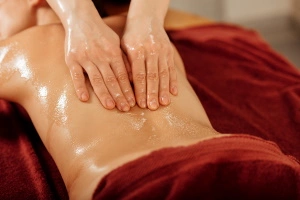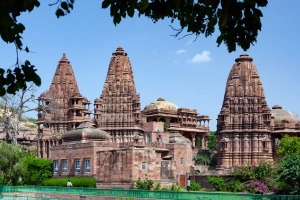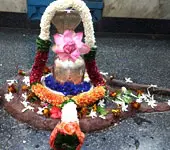Abhyanga

Abhyanga means applying something such as oil on the body and massaging.
Abhyanga snana means taking a bath after that.
Abhyanga is also called abhyanjana.
Abhyanga has got relevance both in Ayurveda and Hindu religion.
Abhyanga in Ayurveda
Ayurveda prescribes applying oil from head to toes and massaging on a regular basis.
If this is not possible, an oil massage should be done at least on the head, earlobes, and feet.
Benefits of abhyanga
- Keeps the body youthful.
- Pacifies vata, and kapha diseases.
- Keeps the skin soft and glowing.
- Nourishes the dhatus of the body.
- There are two nerves at the feet connecting directly to the eyes. Massaging the feet is good for eyesight.
- Removes dirt from the body completely.
- It has a cooling effect.
- Good for sleep.
When abhyanga should not be done
- If kapha is vitiated in the body.
- If there is indigestion.
- If there is vomiting.
Abhyanga in Hindu religion
The smritis prescribe regular abhyanga snana except on some forbidden days.
Not taking abhyanga snana can deprive one of his health, longevity, wealth, and fortune.
In addition to oil, the smritis prescribe various other materials like mud, flowers, and durva grass.
In the religious context, abhyanga is meant to purify the body, mind, and atma.
Recommended for you
Overcoming Grief - Lessons from King Senajit's story

Timeless insights on facing a loss, finding solace, and finding inner peace. Healing grief with mindfulness and wisdom.....
Click here to know more..Thirukalukundram Temple

Two eagles come to the hilltop temple every day around noon. They are called Shambu and Aadhi. They were two overzealous Rishis who were cursed by S....
Click here to know more..Natesha Bhujanga Stotram

santaapaghnam puraare dhuri cha tava sabhaamandire sarvadaa tvan- nri'ttam pashyanvaseyam pramathaganavaraih' saakametadvidhehi.....
Click here to know more..
English Topics
Rare Topics
Click on any topic to open
- 237 The Practice of Bhojana Sadhana
- 236 Words of Wisdom - 2
- 235 Defining Goodness - Sanatana Dharma's Perspective
- 234 Vibhishana in Ramayana - A Tale of Morality, Loyalty, and Redemption
- 233 God will not let you break
- 232 A Glimpse into the 64 Arts
- 231 Chembai Vaidyanatha Bhagavatar - A Carnatic Maestro's Musical Odyssey
- 230 Understanding Adhyāsa: A Closer Look at False Attribution
- 229 Is Family's Permission Necessary For Becoming Sanyasi ?
- 228 Faith In Upasana
Please wait while the audio list loads..
30
Ganapathy
Shiva
Hanuman
Devi
Vishnu Sahasranama
Mahabharatam
Practical Wisdom
Yoga Vasishta
Vedas
Rituals
Rare Topics
Devi Mahatmyam
Glory of Venkatesha
Shani Mahatmya
Story of Sri Yantra
Rudram Explained
Atharva Sheersha
Sri Suktam
Kathopanishad
Ramayana
Mystique
Mantra Shastra
Bharat Matha
Bhagavatam
Astrology
Temples
Spiritual books
Purana Stories
Festivals
Sages and Saints
